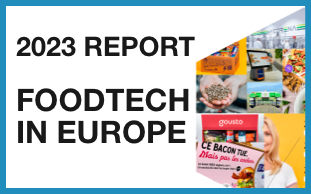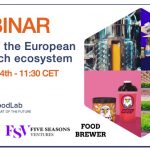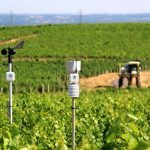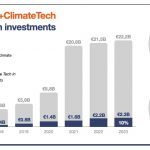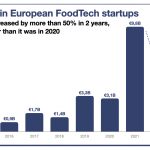Hey,
How to create a new food brand? Like many, I often wonder about the existence of a recipe to create and grow a brand. Indeed, Direct-To-Consumer (DTC) Food Brands have made many waves in the last couple of years with numerous investments and acquisitions from major corporations (Olly and Graze bought by Unilever, Foodspring by Mars). After the lockdown and the massive change in consumer habits it created, incumbent leaders are looking more than ever to transform their brands into DTC and e-commerce operations.
With our friends at Eutopia, we have looked at the history of DTC/DNVB food brands, their evolution, and, most importantly, the status of the “Food DTC playbook” (i.e., the updated recipe to create a successful brand). As we want as many as possible new entrepreneurs to benefit from it, we have put our findings in a free report that you can download here.
In it, you’ll find:
- our take on what it means to be a FoodTech DTC brand today
- the state of food brands in Europe and the funding of these brands in the last 6 years
- A focus on the countries leading the investments (see below)
- a quick overview of the top categories
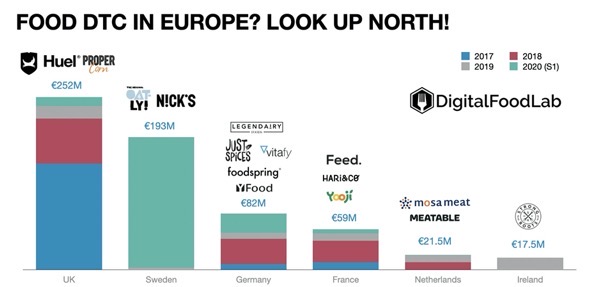
We have identified a notable transformation in the “Food DTC playbook” with four top elements:
- Strong repeat & good margins. Indeed it’s not because it’s a startup that it should be a money pit. If margins are low, repeat should be high and predictable (that’s the case of meal replacement and some alternative protein startups). An even better story is when both margins and repeat are high, such as for food supplements, a category attracting more and more entrepreneurs.
- Online & offline from scratch: If most food brands launched by startups will be only active online initially, they have to think and plan for a retail presence if they want to grow (and plan for the according to margins).
- Community-based rather than paid acquisition. It’s one of the key points that startups often forget as they grow or by big companies trying to venture online. DTC isn’t a synonym for e-commerce or Instagram sales. It also means making consumers part of the venture as partners rather than clients. As acquisition costs increase for online paid acquisition, the focus on community becomes even more important.
- A bigger focus on product quality rather than on marketing. As basic as it may appear, some entrepreneurs still forgot this point along the way. A good brand is an indisputable strength, but it can’t replace a product so good that you want to tell all your friends about it.
In Europe, some startups have successfully applied these guidelines (Oatly and Brewdog are even Unicorns), even if the ecosystem is still in its infancy, but it is growing. Indeed, after a few years of decline, funding into food brands is finally taking off in the first half of 2020. Outside of the UK (the driving force of FoodTech in Europe), many promising startups are emerging in Germany, the Nordics, the Netherlands, and France.
Want to know more? Go here, and download for free our Food Brands 2020 report! And, if you have any questions about this report, our methodology, and how to benefit from this new playbook, contact us!
Have a great week!
Matthieu
TOP INSIGHTS FROM DIGITALFOODLAB #1 – Urban farming leaders are raising (a lot of) money to scale
Plenty, the US vertical farming leading startup, raised an additional $140M at a little under $1 billion. Among Plenty’s new investors, the farming giant Driscoll’s, specialized in berries, is a testimonial of the startup’s ability to grow at scale this category of high-value fruits over its competitors. Just one month before, it was the European leader, the German InFarm, which raised $170M for its in-store farms…
More Here #2 – LARQ, the self-cleaning water bottle startup, raises $10M
LARQ, a self-cleaning refillable water bottle startup, raised $10M. Last year alone, it has sold more than 75,000 of its $95 bottles, notably through retail. It is an impressive feat for a product priced 3 to 4 times more than its direct competitors (which don’t include the cleaning technology). Led by Seventure, the round will help the company expand further. 88 retailers in 16 countries already sell the bottle…
More Here #3 – Sodexo partners with Kiwibot, a robotic delivery startup
Kiwibot, a US-based robotic delivery startup, announced a partnership with French giant Sodexo. The service, launched in October, will enable students and staff at the University of Denver to get food delivered from the campus’ restaurants for $2.50. Sodexo already had a partnership with one of the other leading robotic delivery startups, Starship technologies…
YOU LIKE THIS CONTENT? SHARE IT WITH SOMEONE WHO MIGHT LEARN SOMETHING FROM IT!
We grow with your help. So, if you like this content and feel that it might help someone to understand how Ag, Food, and Retail will be disrupted in the incoming years, share this newsletter or subscribe him or her here!
You still want more? Here are some of our favorite reads of the last couple of weeks:
- BEL, the French cheese corporation is launching the vegan version of its famous babble. The product will be launched in the US only.
- Delivery Hero’s founder invests in Wolt, in order to recreate some competition in Germany’s meal delivery space. Read more about its reasons.
As you can see, FoodTech is indeed moving faster than ever in 2020. But you are not alone. DigitalFoodLab is here to help you :
- Stay at the top of your domain. We provide exclusive insights and information through talks and our FoodTech watch.
- Prepare for the future. We help you make plans for long-term trends and their implications on your business and identify the right startup to work on your current issues.
- Innovate faster. We work with you to define the innovation strategy fitted to your business means and needs.
No matter if you are a startup or a food giant, we are here to work with you and change the world of food! (contact us).

